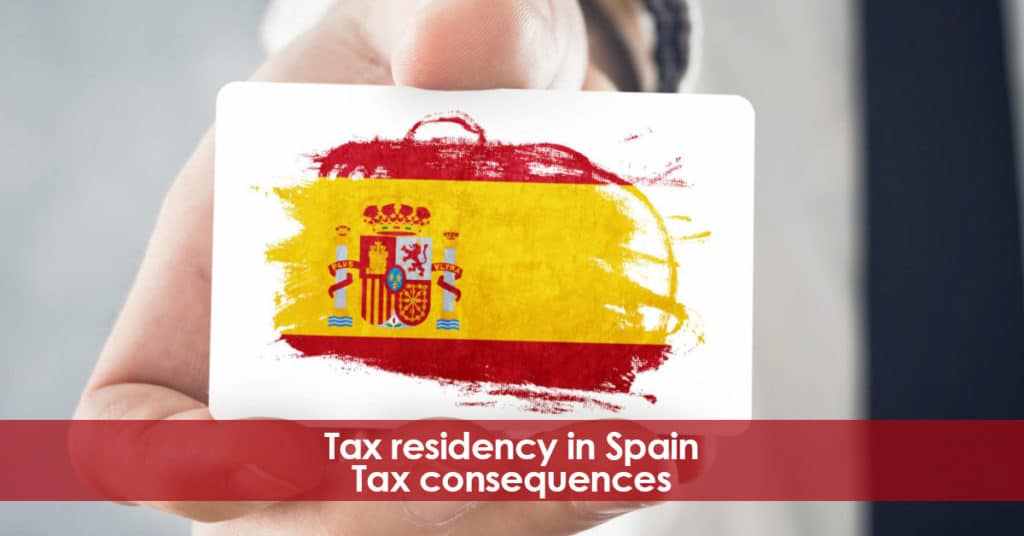How Does the Spanish Digital Nomad Visa Impact Tax Implications for Remote Workers?
With the growing popularity of remote work, many professionals are attracted to Spain’s new digital nomad visa. However, understanding the tax implications of the Spanish Digital Nomad Visa is essential to make informed decisions before relocating. This visa provides foreign remote workers an opportunity to live and work in Spain while benefiting from local tax policies. But what does this mean for your tax obligations?
Marfour International Law Firm offers insights on the complex but fascinating tax landscape for digital nomads in Spain. Below, we’ll explore what the Spanish Digital Nomad Visa means for tax residency, obligations, and benefits, helping you navigate each detail. For further information, you can check out Marfour International Law Firm’s Spanish Digital Nomad Visa guide.
What Are the Tax Implications of the Spanish Digital Nomad Visa?
The Spanish Digital Nomad Visa has quickly become a popular choice for remote workers looking to live in Spain while working for foreign employers. While this visa opens up exciting opportunities to experience Spain’s lifestyle, it’s essential to understand the tax implications that come with it. Here’s a breakdown of what you need to know about the tax landscape for digital nomads in Spain.

Tax Residency Status
One of the first questions digital nomads face is whether they will be considered a tax resident in Spain. Generally, if you stay in Spain for over 183 days in a calendar year, you are classified as a tax resident, which means you will be subject to Spanish taxes on your worldwide income. If you stay less than 183 days, you are usually considered a non-resident and only taxed on income earned within Spain. However, this residency rule can sometimes be complex, and digital nomads may benefit from consulting a tax advisor or legal expert, such as Marfour International Law Firm, to clarify their status and obligations.
Income Tax Rates for Residents and Non-Residents
If you’re a tax resident, Spain’s progressive income tax rates apply, which range from around 19% to 47% depending on your total income. This includes income from foreign employment, freelance work, and investments. Non-residents, on the other hand, pay a flat rate of 24% on Spanish-sourced income. It’s worth noting that income from foreign sources is not usually taxed for non-residents, which can significantly affect a digital nomad’s tax planning.
Special Expat Tax Regime (Beckham Law)
Spain’s “Beckham Law” is a beneficial tax regime that allows certain foreign workers, including digital nomads, to pay a reduced tax rate on their Spanish income. Under this regime, qualifying individuals pay a flat 24% on income earned in Spain up to €600,000 for up to six years, instead of being taxed on their worldwide income. However, this regime has specific requirements and may not apply to all digital nomads. Seeking guidance from tax experts, like Marfour International Law Firm, can help in determining eligibility and navigating this process.
Social Security Contributions
Social security is another consideration for digital nomads in Spain. Spain has agreements with certain countries, like the U.S. and many European nations, which may allow digital nomads to continue contributing to their home country’s social security system. However, if your country does not have such an agreement with Spain, you may need to contribute to the Spanish social security system, which could impact your net income.
Double Taxation Agreements
To avoid paying taxes twice on the same income, Spain has Double Taxation Agreements (DTAs) with many countries. DTAs can help digital nomads reduce their tax liabilities, as these agreements allow you to claim tax credits or exemptions on foreign income. Checking Spain’s agreements with your home country can provide insights into your tax obligations and help in planning effectively.
Deductions and Allowances
Spain offers various deductions and allowances for tax residents that can reduce your taxable income. These include deductions for family circumstances, primary residence expenses, and contributions to Spanish pension plans. While these deductions may be less relevant to short-term digital nomads, those staying for longer periods could find them beneficial. Engaging with a legal firm familiar with Spanish tax law, like Marfour International Law Firm, can help ensure that you take full advantage of available deductions.
How Does the Spanish Digital Nomad Visa Affect Taxes for Non-Residents?
The Spanish Digital Nomad Visa makes it easier for remote workers from outside Spain to live and work in the country. However, even though it’s designed to accommodate non-residents, it can have tax implications that digital nomads should understand. Here’s a rundown of what the Digital Nomad Visa means for non-residents in Spain when it comes to taxes.
Tax Residency Status
A significant factor is whether or not you’ll be considered a tax resident. Generally, if you spend more than 183 days in Spain in a calendar year, you’re considered a Spanish tax resident and must pay taxes on your worldwide income. But, if you stay under 183 days, you maintain your non-resident status and only pay taxes on income sourced within Spain. This means that, as a non-resident, income from foreign employers won’t be taxed by Spain, offering a tax-efficient way to live in the country.
Income Tax for Non-Residents
If you’re classified as a non-resident, you’re subject to a flat income tax rate of 24% on any Spanish-sourced income. For most digital nomads working with foreign clients or employers, this rate may have little impact, as income from outside Spain typically isn’t taxed for non-residents. However, if you pick up any freelance or contract work within Spain, it will be subject to this non-resident tax rate.
Social Security Contributions
The Spanish Digital Nomad Visa may require digital nomads to contribute to Spain’s social security system, depending on where they’re from. Spain has social security agreements with certain countries, such as those in the EU and the United States, which may allow you to remain in your home country’s social security system instead of contributing in Spain. This arrangement helps non-residents avoid dual contributions and reduces social security expenses. It’s advisable to verify whether your country has a social security agreement with Spain before planning your finances.
Double Taxation Agreements
Spain has Double Taxation Agreements (DTAs) with various countries to prevent individuals from paying taxes twice on the same income. Under these agreements, if you’re paying taxes on your foreign income in your home country, you can often avoid being taxed again on that income in Spain. If you’re a non-resident, it’s beneficial to check Spain’s DTA with your home country to determine how it impacts your tax obligations. Consulting with Marfour International Law Firm or a tax specialist can clarify which agreements apply to you.
Exemptions and Special Tax Regimes
One of the benefits available for eligible digital nomads is Spain’s “Beckham Law,” or special expat tax regime, which offers a flat tax rate of 24% on income earned in Spain up to €600,000 for up to six years. While typically this regime is aimed at foreign employees of Spanish companies, some digital nomads may qualify. This regime is especially beneficial if you are earning Spanish-sourced income, as it limits your tax exposure on global earnings.
What Are the Tax Obligations for Nomads in Spain Staying Long-Term?
For digital nomads who intend to stay long-term in Spain, it’s essential to understand the tax obligations that may apply. Here’s a breakdown of the main points to consider, from residency rules to income tax and social security contributions.

Tax Residency Status for Long-Term Stays
If you stay in Spain for more than 183 days in a calendar year, you’re generally classified as a tax resident. This means that Spain will tax your worldwide income, including income earned from foreign employers or clients, unlike non-residents who are only taxed on Spanish-sourced income.
Income Tax Rates for Tax Residents
As a tax resident, you’ll be subject to Spain’s progressive income tax rates, which range from 19% to 47% based on your income level. This includes wages, freelance income, and capital gains. Understanding your taxable bracket can help in budgeting and tax planning as you adjust to Spanish tax rates.
Potential Benefit: The Beckham Law
Spain’s Beckham Law is a tax regime that offers a 24% flat rate on Spanish-sourced income up to €600,000 for qualifying foreign residents, which can include some digital nomads. If eligible, this tax rate applies instead of the progressive rates and excludes worldwide income, making it a popular choice for high-earning expats.
Double Taxation Agreements (DTAs)
Spain has Double Taxation Agreements (DTAs) with numerous countries to prevent individuals from paying taxes twice on the same income. These DTAs allow long-term residents to claim tax credits or exemptions on income taxed in their home country, potentially lowering their Spanish tax burden.
Social Security Contributions
For long-term residents, contributing to Spain’s social security system may also be required. Spain has agreements with certain countries, such as EU member states and the U.S., which allow digital nomads to remain on their home country’s social security plan. Otherwise, they may need to contribute to the Spanish system, affecting overall income.
Consulting with a Tax Specialist
Navigating tax obligations as a long-term resident in Spain can be complex, especially if you have foreign income sources. Engaging with a tax specialist, such as Marfour International Law Firm, can provide guidance on your residency status, eligibility for the Beckham Law, and steps to optimize tax liabilities.
By understanding these tax obligations, digital nomads in Spain can plan for a long-term stay that aligns with their financial goals and ensures compliance with Spanish tax laws.
Do Digital Nomads Benefit from Any Special Tax Reductions in Spain?
Yes, digital nomads in Spain can benefit from specific tax reductions, primarily through Spain’s “Beckham Law” and Double Taxation Agreements (DTAs) with other countries. Here’s how these mechanisms can work in favor of digital nomads:
Beckham Law for Reduced Tax Rates
Spain’s Beckham Law, officially called the Special Expatriate Tax Regime, allows some foreign residents to pay a flat 24% tax rate on Spanish-sourced income, rather than being taxed progressively up to 47%. While this regime was initially designed for foreign executives, certain digital nomads can qualify if they meet specific requirements. The benefits under this law apply for up to six years, making it particularly attractive for high-earning remote workers.
Key Eligibility Criteria:
- You must work for a foreign or Spanish employer, and self-employed individuals may need to meet additional requirements.
- You must not have been a Spanish tax resident in the five years prior.
If eligible, the Beckham Law lets digital nomads enjoy a straightforward tax structure while excluding global income from Spanish taxes.
Double Taxation Agreements (DTAs)
Spain has Double Taxation Agreements with many countries to prevent digital nomads from being taxed twice on the same income. For non-residents or those taxed on foreign earnings, DTAs often allow you to claim tax credits or exemptions in Spain if taxes have already been paid in your home country. This is especially valuable for long-term digital nomads with international income sources.
Additional Tax Deductions for Residents
While not specific to digital nomads, long-term residents in Spain can also take advantage of general tax deductions. These include deductions for expenses such as primary housing, pension contributions, and, in some cases, health insurance. Taking advantage of these deductions can further reduce the overall tax burden for digital nomads who become residents.
Seeking Expert Guidance
Each tax reduction option has specific requirements and can vary depending on your employment structure and country of origin. Engaging a legal advisor or tax specialist, like Marfour International Law Firm, can help you understand your eligibility, optimize tax benefits, and ensure compliance with Spanish tax regulations.
What Income Types Are Exempt from Spanish Tax?
For those working or residing in Spain, understanding which types of income are exempt from Spanish tax can make a difference in managing tax obligations effectively. Generally, exemptions depend on your tax residency status, the source of the income, and applicable tax treaties. Here’s an overview of the key income types that may be exempt from Spanish taxes:

Foreign-Sourced Income for Non-Residents
Non-residents in Spain are only taxed on income sourced within Spain. This means that as long as you maintain non-resident status (typically by spending fewer than 183 days in the country), any foreign-sourced income—like salaries from overseas employers, freelance work with foreign clients, and non-Spanish investment income—remains exempt from Spanish tax. This setup is beneficial for digital nomads or temporary workers who reside in Spain for less than six months.
Income Covered Under Double Taxation Agreements (DTAs)
Spain has Double Taxation Agreements (DTAs) with numerous countries, preventing dual taxation on certain income types, including employment income, pensions, and dividends. If you’re a tax resident in Spain but your income has already been taxed in another country, you may be able to apply the DTA provisions to exempt this income from Spanish tax or claim a tax credit, depending on the agreement’s specifics. Consulting a tax advisor, like Marfour International Law Firm, can clarify how DTAs apply to your unique situation.
Some Foreign Pensions
Certain pensions, particularly government pensions from foreign countries, may also be exempt from Spanish tax if a DTA specifies it. For example, government pensions received by U.S. residents are often only taxable in the United States. Similarly, pensions from public sector employment in other countries may be exempt from Spanish taxes, provided there’s an applicable tax treaty in place.
Exemptions Under the Beckham Law
The Beckham Law, or Special Expatriate Tax Regime, allows eligible foreign residents to be taxed at a flat rate on Spanish-sourced income only. While not an exemption per se, it provides an effective way for qualifying expats to avoid taxes on worldwide income, including foreign dividends, interest, or business earnings, during their first six years of residency.
Capital Gains on Primary Home Sales (for Residents)
For Spanish tax residents, selling a primary residence may qualify for a partial or full tax exemption if the proceeds are reinvested in another primary residence. This exemption aims to support residents in maintaining homeownership and only applies to gains from selling a primary residence within the European Union or countries with tax agreements.
In summary, Spain offers tax exemptions on various income types, especially through non-resident rules, DTAs, and the Beckham Law. Understanding these provisions can help maximize tax efficiency while living or working in Spain, and seeking professional advice ensures full compliance and potential savings.
FAQs
Do digital nomads on the Spanish Digital Nomad Visa need to pay taxes on foreign income?
If they meet the residency threshold of over 183 days, digital nomads are considered tax residents and must report and potentially pay taxes on global income. Non-residents, however, are taxed only on income earned within Spain.
Is it possible to avoid double taxation while on the Spanish Digital Nomad Visa?
Yes, Spain has double taxation agreements with many countries, which may allow digital nomads to avoid being taxed twice on the same income. Consulting a tax professional is advised to navigate these agreements.
Can digital nomads benefit from any tax incentives in Spain?
Yes, some may qualify for tax benefits like the Beckham Law, which taxes only Spanish-sourced income for up to five years. Other deductions may also apply, depending on individual circumstances.
Conclusion
For remote workers, Spain’s digital nomad visa offers an exciting opportunity to live in a vibrant European country while working remotely. Yet, the tax implications of the Spanish Digital Nomad Visa are vital to understand thoroughly. This visa comes with unique obligations and potential benefits, but as tax policies vary based on residency status, income type, and more, consulting professionals like Marfour International Law Firm is essential to navigate these complexities confidently.






